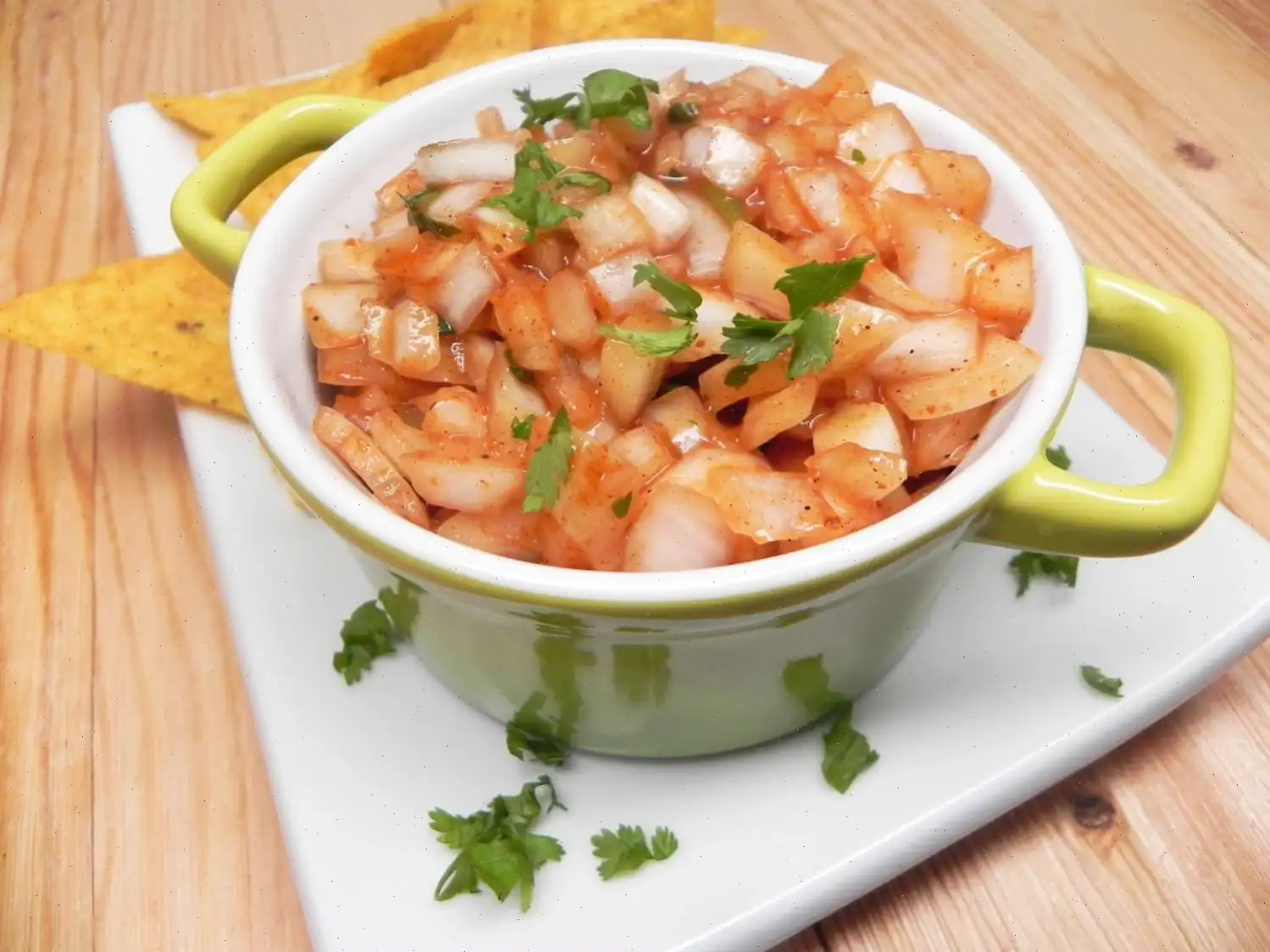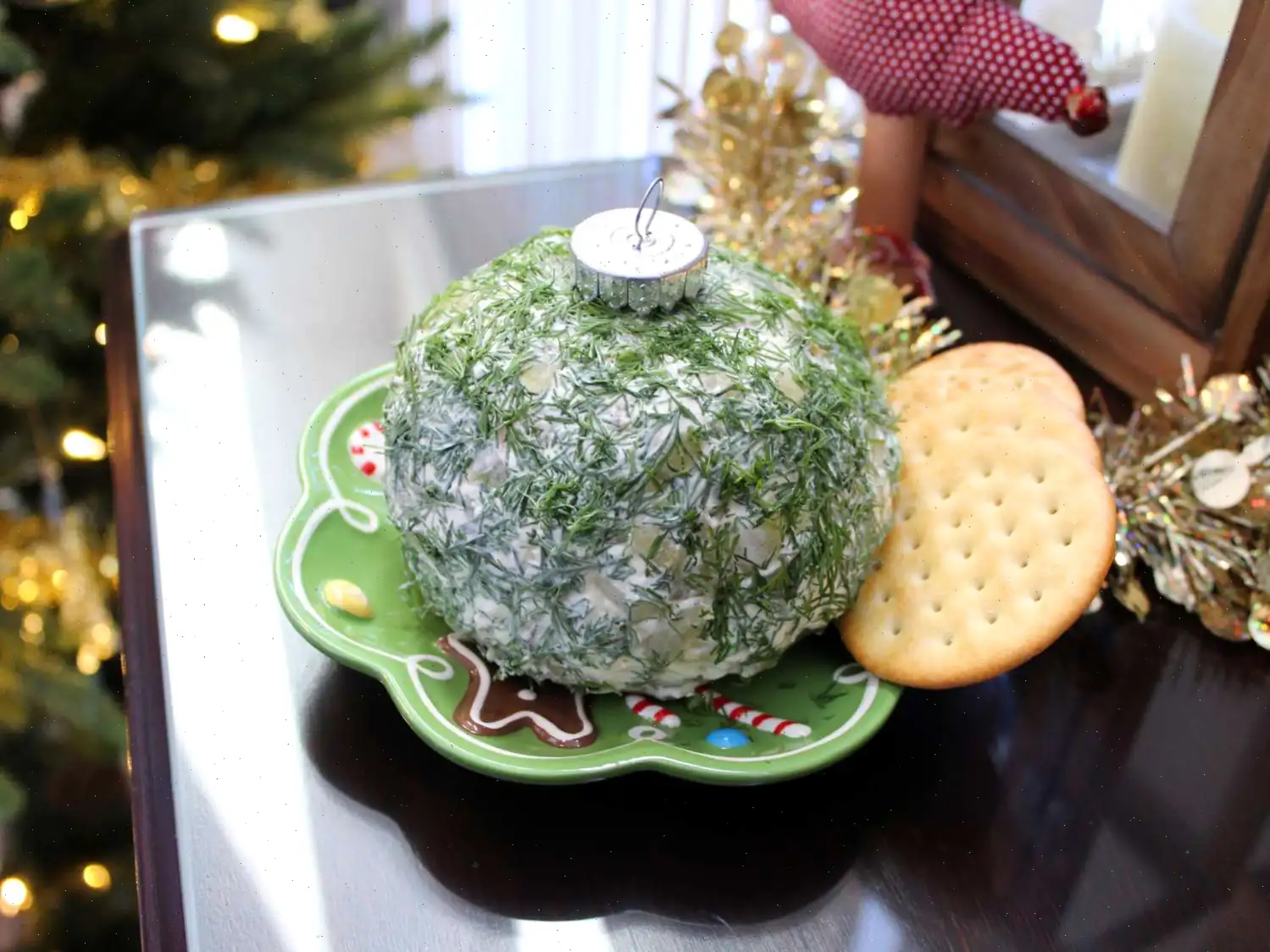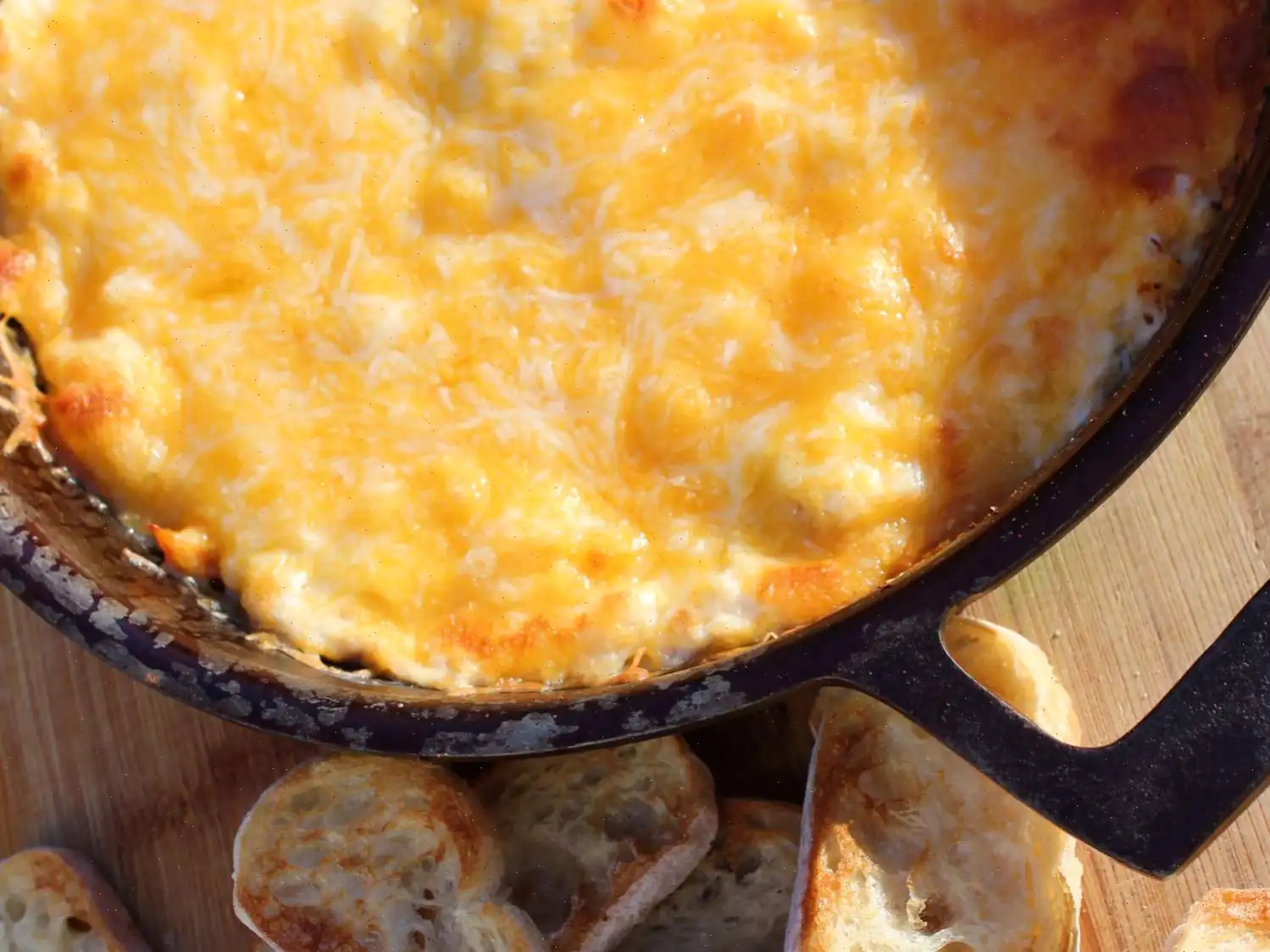
Indian Spiced Onions Recipe
Ingredients
This recipe was developed at its original yield. Ingredient amounts are automatically adjusted, but cooking times and steps remain unchanged. Note that not all recipes scale perfectly.
- 1 onion, chopped
- 2 teaspoons ketchup
- 1 teaspoon lemon juice
- 1 tablespoon white sugar
- 1 teaspoon chopped fresh cilantro
- 1 teaspoon chopped fresh fenugreek leaves
- 1 teaspoon chili powder
- 1 pinch salt
Directions
- Step 1: In a medium bowl, combine the chopped onion and ketchup. Stir until the onion is thinly and evenly coated with the ketchup.
- Step 2: Add the lemon juice to the mixture and stir to combine.
- Step 3: Stir in the sugar, chopped cilantro, fenugreek leaves, chili powder, and salt. Mix well until all ingredients are fully combined.
- Step 4: Cover the bowl and refrigerate the mixture for 24 hours. This will allow the lemon juice to slightly neutralize the raw onion flavor.
Nutrition Facts (per serving)
28 Calories
| Total Fat | 0g | 0% |
| Sodium | 36mg | 2% |
| Total Carbohydrate | 7g | 2% |
| Dietary Fiber | 1g | 3% |
| Total Sugars | 6g | - |
| Protein | 1g | 1% |
| Vitamin C | 3mg | 3% |
| Calcium | 8mg | 1% |
| Iron | 0mg | 1% |
| Potassium | 69mg | 1% |
* Percent Daily Values are based on a 2,000 calorie diet. Your daily values may be higher or lower depending on your calorie needs.
** Nutrient information is not available for all ingredients. Amount is based on available nutrient data.
If you are following a medically restrictive diet, please consult your doctor or registered dietitian before preparing this recipe for personal consumption.
Indian Spiced Onions are a flavorful and aromatic accompaniment to many Indian dishes, especially popular in Indian restaurants where they are often served with appetizers like papadums. The dish consists of thinly sliced onions marinated in a spicy and tangy mixture of ketchup, lemon juice, sugar, fenugreek, chili powder, and cilantro. The vibrant and sharp flavors make it a delightful side dish that complements the rich, savory flavors of Indian cuisine.
Origin and History
The history of Indian Spiced Onions can be traced to the rich culinary traditions of India, where onions have been used in a variety of forms for centuries. This particular preparation is believed to have originated as a tangy, pickled condiment in the northern regions of India, where the combination of sweet, sour, and spicy flavors is highly valued. While onions are a staple in Indian cooking, this specific spiced version became popular as a complement to fried foods and snacks, such as papadums and samosas.
Regional Variations
Indian cuisine is known for its wide variety of regional differences, and the Indian Spiced Onions dish is no exception. In the northern parts of India, such as Punjab, these onions are often made with the addition of amchur (dried mango powder) or chili powder for extra heat. In contrast, southern regions may incorporate tamarind or coconut to balance the acidity of the onions. Regardless of the variations, the primary idea remains the same: to create a zesty, tangy relish that pairs perfectly with the spiced, savory foods of Indian cuisine.
Distinguishing Features
While similar to other pickled onion recipes from around the world, Indian Spiced Onions have distinct characteristics that set them apart. Unlike the simple vinegar-based pickled onions found in European cuisines, this recipe incorporates ingredients like ketchup, sugar, and fenugreek, which lend it a unique sweet, sour, and slightly bitter profile. Fenugreek leaves, in particular, are a signature ingredient in Indian cooking, providing a slightly nutty flavor that balances the heat from the chili powder. Additionally, the use of fresh cilantro and lemon juice gives the dish a refreshing and fragrant finish.
Where It Is Typically Served
Indian Spiced Onions are commonly served as a side dish in Indian restaurants, often accompanying fried snacks like papadums, samosas, or pakoras. These onions are also a popular choice to pair with grilled meats, such as tandoori chicken, as they help cut through the richness of the dish. At home, they are typically enjoyed as a condiment with curries, rice dishes, or as part of a traditional Indian meal. Their refreshing and tangy taste provides a perfect contrast to the complex spices found in other Indian dishes.
Interesting Facts
- In many Indian households, Indian Spiced Onions are left to marinate overnight, allowing the flavors to meld together, with the onions becoming more tender and flavorful.
- Although papadums and fried snacks are the most common accompaniments for this dish, it is also often enjoyed with simple dishes like dal or rice for an added burst of flavor.
- Fenugreek, a key ingredient in this recipe, is not just flavorful but also has health benefits, including aiding digestion and reducing blood sugar levels.
- Despite the popularity of this dish in Indian cuisine, variations of spiced or pickled onions can be found in many cultures worldwide, such as in the Middle East and Central Asia, where onions are similarly marinated in vinegar or citrus juice with spices.
FAQ about Indian Spiced Onions Recipe
Comments
Catherine Ramirez
11/25/2024 05:28:45 PM
I tried this recipe along with a similar one on the same evening. Initially, I followed the instructions precisely, but I found elements in the other recipe that I preferred, so I decided to also add cayenne pepper and Hungarian paprika to this one. That little tweak elevated it to a 5-star rating for me! While delicious as is, I suggest adding a bit of spice to enhance the flavor.
Joshua Flores
11/28/2023 01:32:59 PM
I paired this with a tandoori chicken dish and it was a hit with everyone. I recommend letting it refrigerate overnight for even better flavor.
Jonathan Lopez
02/28/2024 01:26:38 PM
Unchanged, this dish is fantastic. We enjoyed it at the perfect level of spiciness following the recipe. It paired wonderfully with a few cold beers, some spiced onions, and poppadums!
Justin Rivera
07/25/2024 02:46:10 AM
I tried this recipe of pickled onions and it turned out amazing! Simply soak onions in malt vinegar, season with salt and add green chillies. Let it sit overnight and enjoy the tangy and spicy flavor when the onions turn pink. It's a quick and delicious condiment to add to any meal.
Edward Martin
12/03/2024 08:24:36 AM
I was extremely let down by this dish. I followed the recipe exactly, except for using fenugreek seeds as I didn't have ground fenugreek. I found that the onion flavor became overpowering the next day, and the dish turned out to be too sweet for my liking. It didn't resemble the dish served at my favorite Indian restaurant at all, not even remotely close.








